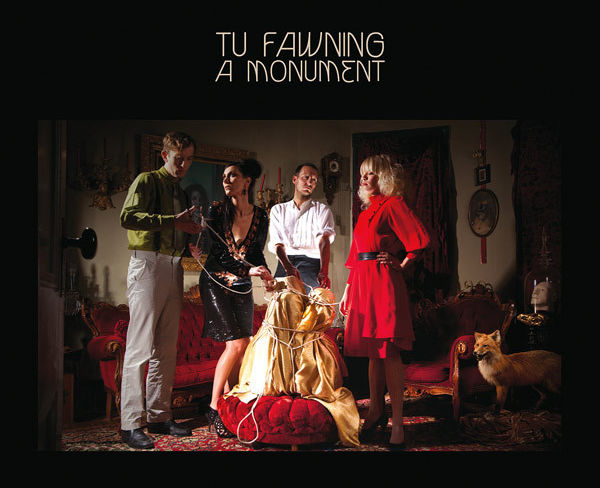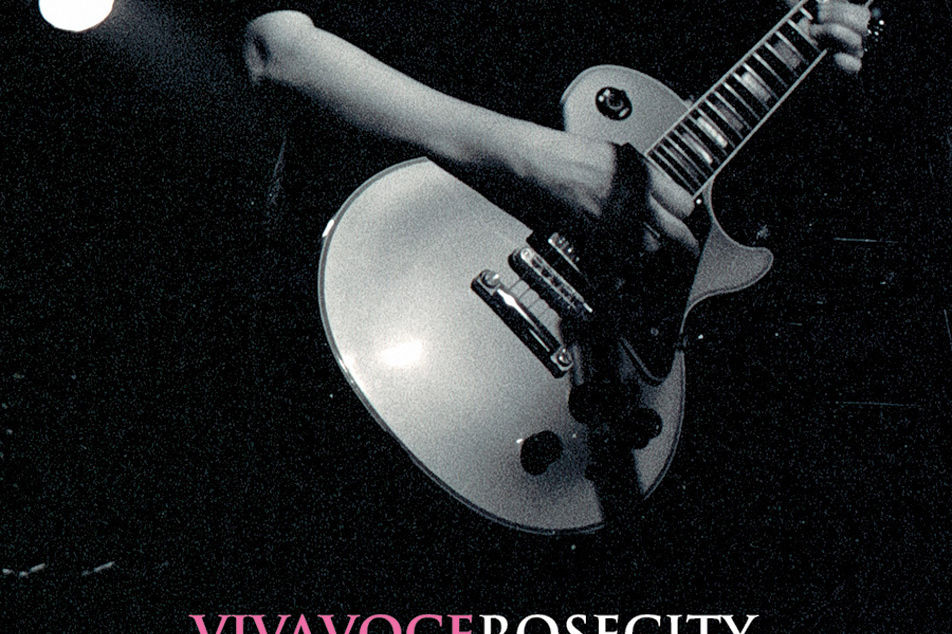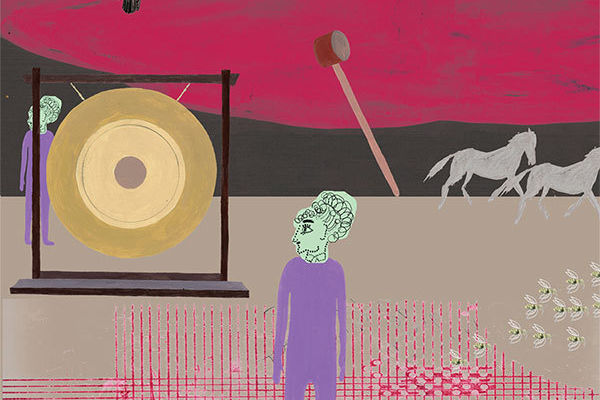Music Review: A Monument by Tu Fawning

Image: Courtesy Tu Fawning
WHEN TU FAWNING released its debut album, Hearts on Hold, in 2010, it was hailed as a Portland supergroup: four well-known multi-instrumentalists whose combined sound wound together many of the local music scene’s disparate elements—percussive indie rock, chamber strings, grunge, full-throated harmonies, vaudeville—to create a highly theatrical, but sometimes jagged, music box of sorts. Since then, they’ve been busy refining, tuning, and touring their formidable live act for months at a time, and it shows in their new album—the first to be written collaboratively. Adding synthesizers and a certain sheen of polish, A Monument is a seductive, darkly energetic, wintry pop that demonstrates a band growing confidently into its own sound.
From the opening notes of the first track, “Anchor,” it’s clear that the band’s self-production is lusher and more approachable. At times recalling the Swedish electronic group the Knife, Tu Fawning’s drums and synths roll together, tumbling forth hand in hand, spurred on by Corrina Repp’s elegant, haunting voice.The increased tightness and contributions of the players—Repp’s voice, Joe Haege’s fuzzy guitar and manic drums, Liza Reitz’s violin, and especially Toussaint Perrault’s synths—is clear in songs like “Build a Great Cliff,” where droning horns and bleeps reminiscent of Portishead are driven on by galloping drums like some midnight cavalry ride through a barren western landscape. The band comes in on backing vocals, and a distorted Haege yells at one point, seemingly from a dark corner of the studio: “I got so lost in tearing down I don’t know what is left.”
But it is Repp’s vocals that continue to set the band apart. Her voice soars through songs like an unmoored, abandoned siren, wending her way through lyrics that hint at grand tales of love and loss, but focus mostly on the flawed bones and flesh that both constitute us and separate us. In the case of “To Break Into,” one of the most chillingly catchy tracks on the album, she seeks a dramatic, even violent union. The song combines mournful guitar with synth whips and the clarion call of a trumpet to tell an arcane love story: “So there I stood before the court of demigods and overlords, engaging in a game I both love and hate, and then I saw you. How can I break into?” And although Repp ends the album’s decadent carnival ride alone—“send me your love when I am old”—Tu Fawning’s new endeavor reveals that this ambitious, artfully inclined band is learning to integrate its players’ many gifts into a promising whole.
Tu Fawning will play a record-release concert at Holocene on June 8.




